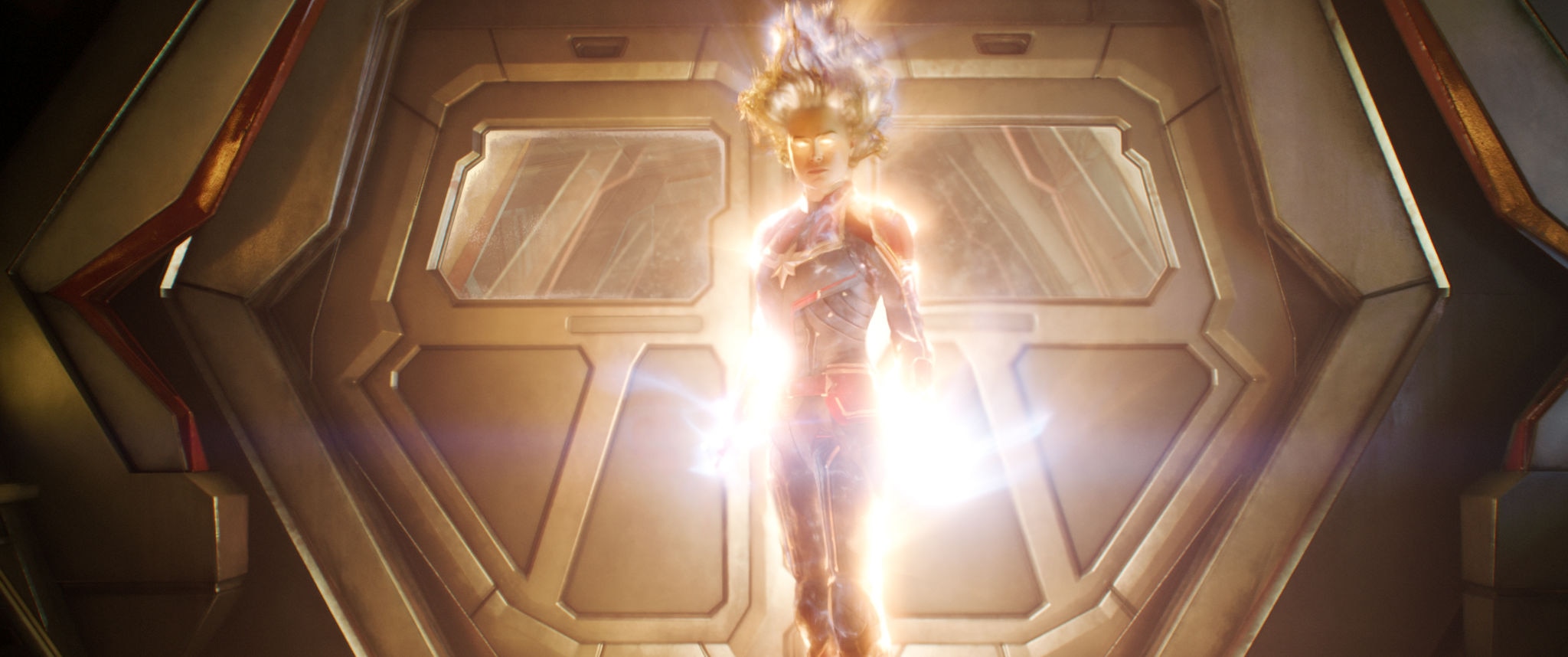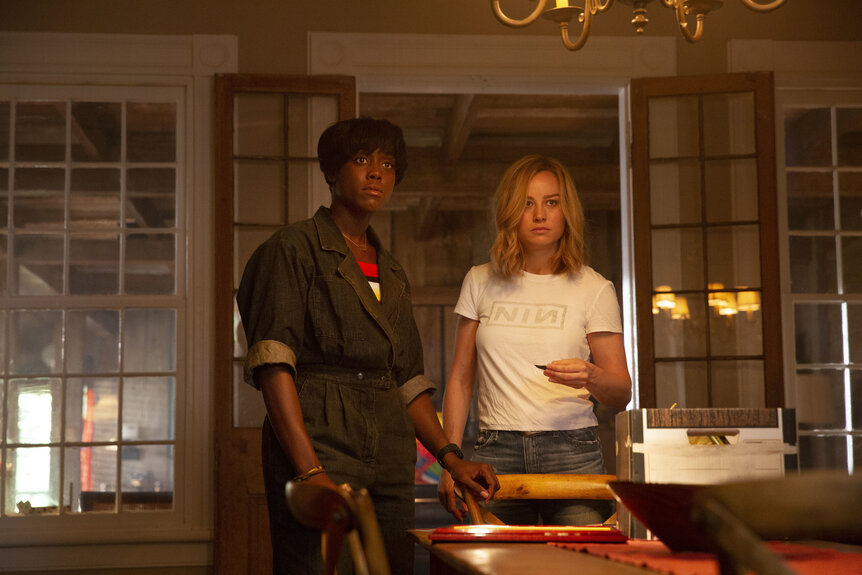Create a free profile to get unlimited access to exclusive videos, sweepstakes, and more!
Captain Marvel is exactly like other girls — that's the point

Captain Marvel blasted, flew, and slammed her way through her big screen debut, making for a record-breaking opening weekend.
Given Captain Marvel’s astonishing powers and her righteous battle against those who would try to control her, it’s tempting to fall into a tired way of thinking, saying she’s not like other girls.
But that’s the whole damn point. Captain Marvel is exactly like other girls. She’s pissed. She’s powerful. She’s funny. She’s indefatigable. She’s sarcastic. She’s free. She’s difficult to define and impossible to control—just the way a girl should be.
Disclaimer: I’ll use the term “girl” and “woman” interchangeably in this article, not because Captain Marvel is a child, but because that is the way women are discussed: as girls. My goal is both to work with the term as it’s commonly used and also to trouble the notion that the term "girl" is offensive, undermining the implication that being a girl is to be inherently less than.
Captain Marvel follows a woman who finds herself living among the alien Kree without any memory of how she got there. When she joins the elite Star Force team to capture or kill enemy Skrulls, she is subdued and tortured. Her assailants drag her to Earth where she escapes and tries to piece together her past, her identity, her mission, and her future.The film does an incredible job of both honoring and building upon Captain Marvel’s comic book history; Directors Anna Boden and Ryan Fleck even brought on Captain Marvel writer Kelly Sue DeConnick as an advisor for the film.
For the Captain Marvel newcomer, the film is filled with powerful feminist moments and amazing aerial feats. For those familiar with her comic book origins, it’s chock-full of reference after reference, eliciting surprise and laughter when Danvers just does her typical (defiant) Danvers thing. For both groups, Captain Marvel provides two hours of hilarity, action, a very cool cat, and a woman coming to terms with her powers and her emotions.
More than any of that, though, Captain Marvel gets to be a story about the power of friendship and chosen family. Yes, our hero starts out isolated. And, yes, at the outset, it seems like her significant mentors and friends are male. But as she pulls on the threads of her past, Danvers finds herself face to face with her former best friend, Maria Rambeau.
At one point in the film, Maria pilots a plane full of civilians while being pursued by an enemy in a spaceship. Her pursuer has more firepower, better technology, and a real love of killing. Maria maneuvers the plane skillfully, navigating the terrain so that it becomes her advantage and her enemy’s weakness, proving she’s not to be trifled with. Maria ends the firefight by whipping the plane down into a canyon and then popping up in front of her assailant, blowing the opposing force to smithereens.
Danvers isn’t present for this fight—she’s busy elsewhere—but the scene demonstrates that she isn’t alone in her love of justice, her desire for freedom, or her womanly ways. Danvers and Maria are birds of a feather, drawn together by hardship and institutional oppression.
What many might see is two exceptional women rather than one, but I’d like to offer another way of viewing their relationship and their exceptionalism. Danvers and Maria are two women who worked their assess off, had remarkable talent, and, if we’re being honest, got really f*cking lucky.
Think about how many women wanted to be in their seats. Think of all the pilots and leaders and heroes who wanted to step forward, who wanted to find another way, but were prevented from doing so because of their gender. Think about what happened to them. They were overlooked and harassed and dissuaded and fired and convinced that following their dreams would never be an option. They were funneled into more "feminine" pursuits and denied the opportunity to explore their own capacities and limits in their chosen fields.
Danvers and Maria, thus, become no longer exceptions to the rule, but rather symbolically shatter the rules entirely. They stand in for all the women who have been told no, for all the women who have been held back, for all the women who have been called too emotional, too irrational, too bitchy. They stand in for those of us whose genders have meant we couldn’t fly planes in combat or be scientists or write comic books or serve in the military at all. Danvers and Maria become ciphers not for female empowerment, but for powerful gender minorities.
Women and gender-nonconforming and non-binary folks don’t only matter when we defy the odds. We don’t only matter when we rise to the occasion, especially when that “occasion” is defined by the cisheteropatriarchy and those who benefit from it. We matter as individual human beings and we matter as classes of people who have been historically disenfranchised, historically forced to fight with one hand tied behind our backs. And, like Captain Marvel, we just want to be free, free to find ourselves, free to find our limits, free to scream and laugh and fly.
Maybe it’s time we were.




























